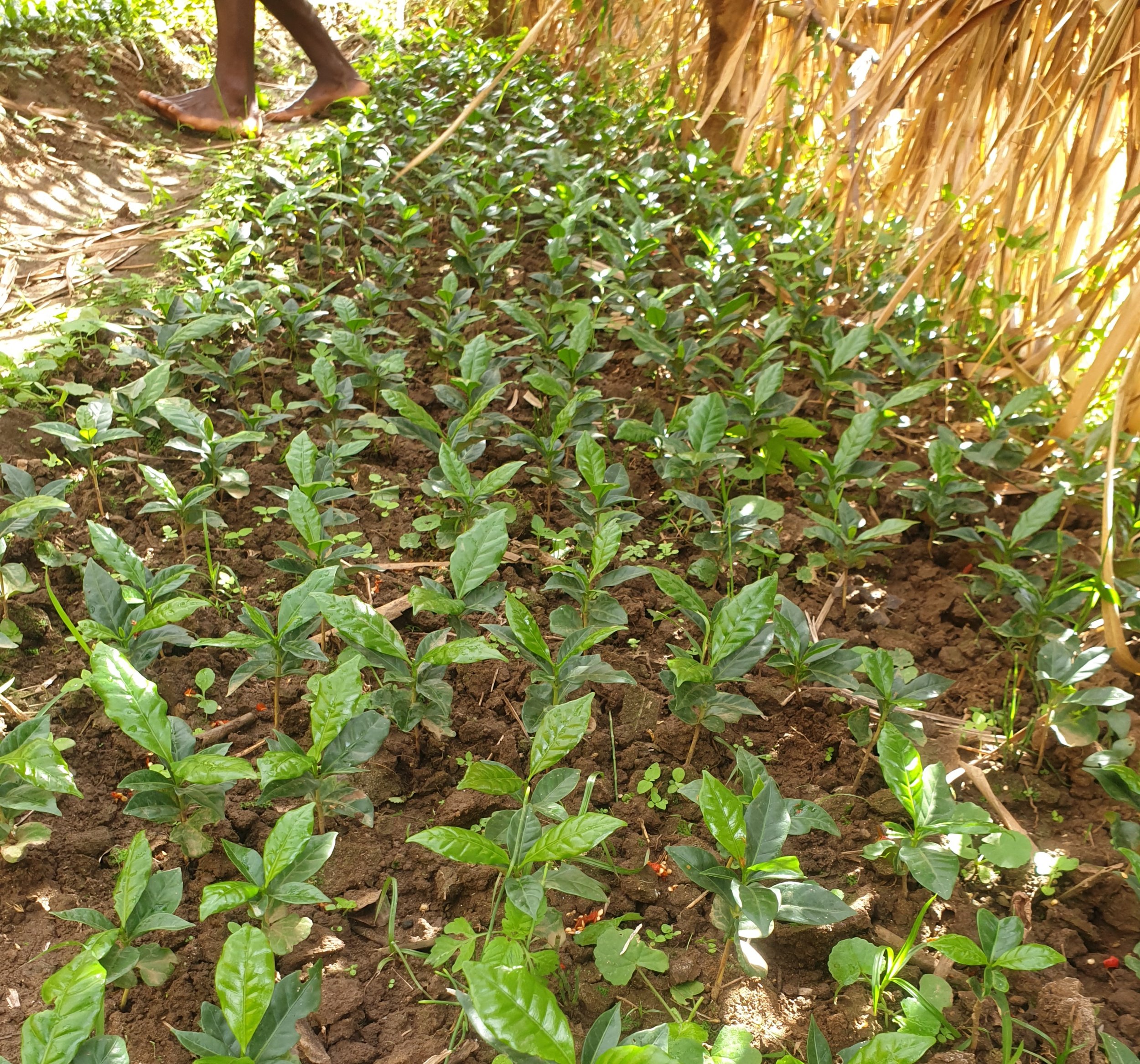Tiko Coffee Collective
Discovering the Tiko Coffee Collective: A Journey into the Heart of Northern Malawi
Nestled in the lush, mountainous regions of northern Malawi, the Tiko Coffee Collective is a community of smallholder farmers from the villages of Nkhota and Junju. These two villages, separated by 15 kilometers and bordered by Malawi's largest national park, Nyika, represent a vibrant agricultural community.
The Villages of Nkhota and Junju
Nkhota and Junju are small but tightly-knit communities, each with a population of roughly 1,000 people. Villagers predominantly engage in smallholding farming, cultivating a variety of crops including maize, beans, avocados, mangoes, tomatoes, macadamia, and coffee, along with raising goats, pigs, and chickens. The landscape is as challenging to traverse as it is beautiful, with mountainous terrains and high altitudes offering scenic views of Lake Malawi and the distant shores of Tanzania and Mozambique from Nkhota.
Both villages thrive as true communities where everyone knows each other. Houses are constructed using locally-sourced materials, and the winding footpaths are alive with the bustle of rural life, including chickens, pigs, small dogs, and occasional wildlife such as vervet monkeys, baboons, incredible birdlife, and various snakes, tortoises, and insects.
The Heartbeat of Tiko Coffee Collective
Tiko Coffee Collective
Members of Tiko
Tiko Coffee Collective and team MF
The Tiko Coffee Collective is a collaboration among 48 of the area's best smallholder coffee farmers. Each year, each member on average produces 100 kg of green coffee, equivalent to 500 kg of coffee cherries. Cherries are harvested by members of Tiko themselves and brought to either Junju drying beds, where they are naturally processed, or to the Nkhota washing station for honey or washed processing. Having centralized areas to drop off coffee makes it easier for Tiko members during each harvest.
Kwimah Mkalamo, one of the collective’s farmers, recalls, “Each harvest season, we gather as a community at the washing station. It’s not just about processing coffee; it’s a time for us to share stories and support each other.”
Coffee, a vital cash crop in Malawi, is often grown alongside staple crops. The farmers of Tiko have mastered intercropping, ensuring their lands are productive and diverse. Their coffee unites them, driving their collective efforts to organize, share knowledge, and work towards higher prices.
Tiko Coffee Nursery
A Community Driven by the Land
Living closely connected to the land, the farmers of the Tiko Coffee Collective embody a lifestyle intimately tied to nature. Many members also engage in other professions, contributing to local primary schools, the hospital in Livingstonia, and running small shops.
By banding together, Tiko farmers stay updated on the latest advancements in coffee cultivation and sustainable farming practices. They introduce new coffee species together and support one another in striving for the highest quality coffee possible.
The Importance of Land Ownership
In the face of pressures from large agricultural businesses or governmental developments, it is crucial for small-scale farmers to retain ownership of their land. By making their family land productive and profitable, Tiko farmers secure their livelihoods and preserve their heritage, fostering sustainability and long-term economic stability for their communities.
As Tiko farmer Jane Mwale puts it, “Owning our land means we can invest in it, improve it, and ensure it continues to provide for our families for generations to come.”
Northern Malawi: A Land of Rich Heritage and Natural Beauty
Northern Malawi is known for its rich cultural heritage and natural splendor. Nyika National Park, bordering the villages, is a haven for wildlife and a stunning example of Malawi's beauty. The park is home to elephants, lions, hyenas, leopards, and a variety of other wildlife. The region experiences a rainy season and a dry season each year, transforming the landscape from lush rainforest to dry African savannah. The area is not in short supply of water as the rains pour into Nyika National Park, flowing through streams, rivers, and underground springs towards Lake Malawi, one of the world's largest lakes.
Challenges and Solutions
The Tiko Coffee Collective faces numerous challenges, from fluctuating market prices to the difficulties of accessing remote farms. However, their collective spirit and innovative practices help them overcome these obstacles. By investing in sustainable farming techniques and infrastructure improvements, they continuously enhance the quality and profitability of their coffee.
Future Goals and Aspirations
Looking ahead, the Tiko Coffee Collective aims to expand its reach and impact. Plans include improving processing facilities, introducing new coffee varieties, and obtaining organic certification. Their vision is to create a self-sustaining community where every farmer benefits from shared knowledge and resources.
Conclusion
The Tiko Coffee Collective is more than just a group of farmers; it is a vibrant community dedicated to excellence in coffee production and sustainable agriculture. Through their combined efforts, the farmers of Nkhota and Junju are making a mark on the coffee industry while preserving their way of life and the natural beauty of their homeland. As they continue to grow and innovate, the Tiko Coffee Collective stands as a shining example of what can be achieved when communities come together with a shared vision and purpose.
Support the Tiko Coffee Collective by choosing their sustainably grown coffee. Your purchase directly benefits the Tiko Coffee Collective.
Tiko Collective cooperative group training





